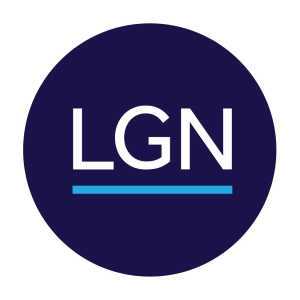Senate in Stalemate Seeking Quick Additional Relief Funds
Senate Democrats blocked Majority Leader Mitch McConnell’s attempt to quickly pass a $250 billion boost in aid to small businesses suffering revenue losses in the pandemic, likely delaying any action until leaders of both parties find a compromise. Leader McConnell had sought unanimous consent in the Senate this morning for the small business aid requested by Treasury Secretary Steven Mnuchin. Monday may be the next chance to quickly approve more aid without objection, and lawmakers are not scheduled to return to Washington until the week of April 20.
Democratic Leader Chuck Schumer and House Speaker Nancy Pelosi are seeking to double the GOP’s $250 billion aid request for the slumping economy, including adding federal aid for state and local governments and added funding for hospitals struggling to treat a crush of coronavirus patients. As part of his plea for urgency, McConnell cited Thursday’s report that showed an additional 6.6 million people filed for unemployment benefits last week, bringing the three-week total to 16.8 million claims.
Secretary Mnuchin had asked Congress to approve by the end of the week an additional $250 billion for the program, bringing the total amount available to $600 billion. The only way to accomplish that with lawmakers out of town would be if no member of the House or Senate objected. There have been no negotiations between Republican and Democratic leaders on a compromise, with Speaker Pelosi signaling that she has no intention of bringing McConnell’s proposal to the House.
Federal Medical Aid to States Falls Short, House Report Says
The federal government has failed to distribute enough personal protective equipment and medical supplies to states reeling from the coronavirus pandemic, according to a document released Wednesday by the House Committee on Oversight and Reform. “The Administration is leaving states to fend for themselves, to scour the open market for these scarce supplies, and to compete with each other and federal agencies in a chaotic, free-for-all bidding war,” Committee Chair Carolyn Maloney said in a statement.
The Department of Health and Human Services gave the panel she chairs a spreadsheet documenting states’ requests and what was actually supplied. As President Trump has spoken of “great coordination” between state and federal governments, needs for personal protective equipment and ventilators remain unmet despite weeks of work. A number of governors said this week that they are still facing shortages, delays, and confusing demands as they try to supply hospitals beset by critically ill patients.
The Trump administration estimated 3.5 billion respirator masks would be necessary, but only 11.7 million have been distributed, less than 1%. Just under 8,000 ventilators have been distributed, a fraction of the number required at hospitals nationwide, according to the committee report.
Export Ban on Protective Equipment Kicks In This Week
The Trump Administration’s ban on exports of some personal protective equipment to fight the coronavirus outbreak in the U.S. will take effect Friday and will remain in place for four months; the publication of the new rule in the Federal Register is making official what President Trump announced last week. The U.S. is following a number of other manufacturing heavyweights that have temporarily halted exports of crucial PPE in recent months, including China and the European Union.
The rule covers five types of protective equipment including N95 masks, surgical masks, and gloves. The Federal Emergency Management Agency “is issuing a temporary rule to allocate certain scarce or threatened materials for domestic use, so that these materials may not be exported from the United States without explicit approval by FEMA,” the notice stated.
President’s Health Team Drafts Plan to Open Economy Safely
President Trump’s top health advisers are developing medical criteria for safely reopening the U.S. economy in coming weeks, should trends showing a crest in the coronavirus outbreak hold steady. Deborah Birx, the immunologist coordinating the White House virus task force, met earlier this week with health experts, including Anthony Fauci, the nation’s top infectious disease expert, Centers for Disease Control and Prevention Director Robert Redfield, and Food and Drug Administration Commissioner Stephen Hahn.
Notably absent from the discussion were economic and political advisers to the president, along with the leader of the coronavirus task force, Vice President Mike Pence. Excluding the political and economic advisers was a deliberate signal that the White House would continue for now to prioritize health considerations over economic ones. President Trump, speaking Wednesday evening at a White House press briefing, said he would “rely heavily” on public health experts to make any policy changes.
CDC Clears Virus-Exposed Critical Workers Who Lack Symptoms
The Centers for Disease Control and Prevention is changing its guidance for workers in critical industries, including food supply and health care, to say that the people exposed to the coronavirus should return to work if they do not have symptoms of the illness. “One of the most important things we can do is keep our critical workforce working,” CDC Director Robert Redfield said Wednesday at a White House press briefing.
The CDC’s guidance has been that workers exposed to someone who tested positive for the coronavirus should self-quarantine for 14 days. Now, the agency says those workers should return to work as long as they have no symptoms of the disease, wear a face mask, practice social distancing, and monitor their body temperature for fever. Director Redfield urged those workers not to remain at work if they feel sick, and to refrain from congregating in break rooms or crowded places.
